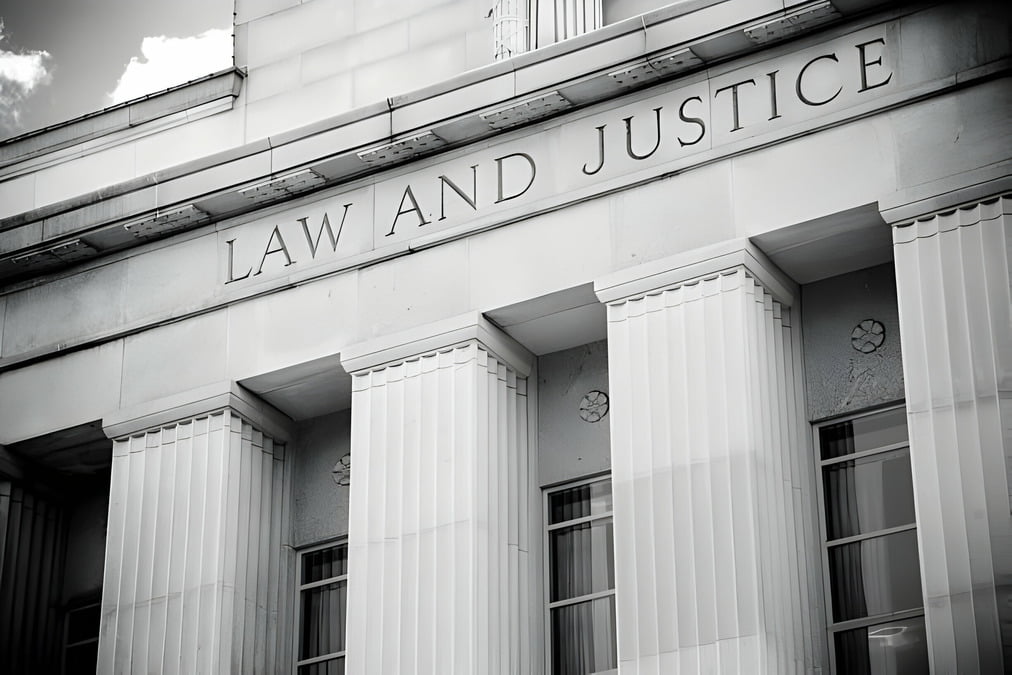Legal Literacy – This article discusses the history and development of administrative law, the principles that must be applied in decision-making and the implementation of government policies, its implementation in Indonesia, and some cases related to administrative law.
Learn more starting from its history and development, its principles, as well as its implementation in Indonesia. Don’t miss out on several important cases related to the law in Indonesia as well.
The Definition of Administrative Law
Administrative law, or government law, is a branch of law that regulates the relationship between the government as the state administrator and the community or individuals affected by government policies. This law also encompasses regulations and procedures in government administrative activities, including decision-making processes and policy implementation. Easier to understand and comprehend, the Scheme of Administrative Law Description can be depicted as follows:
Administrative Law can be explained as follows: Firstly, this law serves as a tool used by authorities to regulate and control society. Secondly, this law also regulates the way citizens participate in the regulation and control processes. Thirdly, administrative law serves as legal protection. And fourthly, this law establishes fundamental norms for authorities in conducting good governance.
History and Development
Administrative law has a long history and development, especially in Indonesia, which was once a colony of the Netherlands. During that period, this law developed to serve the interests of the Dutch colonial administration in Indonesia.
After Indonesia gained independence, administrative law was retained and became part of the Indonesian legal system. The reform era in Indonesia also brought changes in this law, including the recognition of human rights and transparency in government policies.
Principles of Administrative Law
Administrative law is based on several main principles that must be applied in decision-making and the implementation of government policies. Some of these principles include:
The principle of legality
This principle states that every action of the government must be based on applicable law. Government actions must comply with the provisions stipulated in the applicable legislation. This is done to ensure that government actions do not violate human rights and the rights of citizens.
The principle of proportionality
This principle regulates that government actions must be proportional to the intended goal. Government actions must be appropriate and not excessive in making decisions or imposing sanctions. The principle of proportionality is important to protect the rights of citizens and prevent discriminatory actions by the government.
The principle of legal certainty
The principle of legal certainty ensures that the law must be clear and understandable to the public. The government must explain in detail the provisions of the law so that the public can understand their rights and obligations. This will provide legal certainty for the public and prevent arbitrary actions by the government.
The principle of transparency
The principle of transparency demands that the government must be transparent in carrying out its duties. Information about policies, decisions, and actions of the government must be easily accessible to the public. This will strengthen public participation in decision-making processes and provide an opportunity for the community to provide input and criticism on government policies.
Implementation of Administrative Law
The implementation of this law is carried out through the organization and structure of state institutions tasked with making decisions and implementing government policies. In Indonesia, the governance system uses the principle of decentralization, where power and responsibility are given to specific regions to make decisions according to the interests of the local community.
This law plays a crucial role in the governance of Indonesia and is essential in maintaining order and the welfare of society. This law plays a crucial role in the governance of Indonesia and is essential in maintaining order and the welfare of society.
Cases in Administrative Law
Some cases related to administrative law in Indonesia include:
Infrastructure development
Infrastructure development often becomes a source of conflict between the government and the community. The government must carry out the land acquisition process and implementation of infrastructure projects in accordance with applicable legal provisions.
Business licensing
The process of granting business licenses must be based on applicable legal provisions. The government must verify and evaluate applicants for business licenses to ensure that they meet the established requirements. This process must also be transparent and accessible to the public.
Land use
Land use that is not in accordance with legal provisions can lead to conflicts between landowners and the government. The government must carry out the land acquisition process transparently and provide fair compensation to affected landowners. In addition, the government must also ensure that land use does not damage the environment and the health of surrounding communities.
Conclusion
State administrative law or governance law is an important part of the Indonesian government system. The principles contained in this law include the principles of legality, proportionality, legal certainty, and openness must be applied properly in every government action. The implementation of governance laws must also be done transparently and fairly to protect the rights of citizens.
Several cases in governance law such as infrastructure development, granting business licenses, land use, taxes, and consumer protection must be handled wisely and proportionally. The dispute resolution process must be conducted fairly and objectively to achieve justice for all parties.
FAQs
What is state administrative law?
Laws that regulate government actions in carrying out their duties and functions to fulfill the public interest.
Who is responsible for administering state administrative law?
The task of implementing state administrative law or governance law lies with government officials such as regional heads, civil servants, and others related to the implementation of government duties.
Does state administrative law only apply in Indonesia?
This law applies worldwide and is not limited to Indonesia. Setiap negara memiliki peraturan yang berbeda-beda mengenai hukum hukum tata pemerintahan.
How is public administration law different from criminal law?
State administrative law and criminal law are two different types of law. State administrative law regulates the actions of the government in carrying out its duties while criminal law regulates criminal acts committed by individuals.
How to file a lawsuit related to state administrative law?
To file a lawsuit related to the law, a person can apply to the State Administrative Court (PTUN) after making administrative efforts first. The process of filing a lawsuit must fulfill the requirements prescribed by law.


